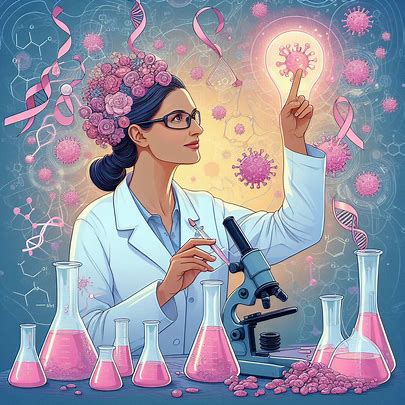Introduction
Dr. Kamal Jayasing Ranadive, born on November 8, 1917, in Pune, India, left an indelible mark on the field of cancer research. Her groundbreaking work on the links between cancers and viruses has had a lasting impact. Beyond her scientific achievements, Dr. Ranadive was also a trailblazer for women in science, advocating for their inclusion and recognition.
Early Life and Education
Dr. Ranadive’s journey began with a strong educational foundation. Her father, Dinkar Dattatreya Samarath, a biologist and professor at Fergusson College, Pune, instilled a love for learning in her. Despite societal expectations, Dr. Ranadive chose to pursue her passion for science rather than follow the traditional path of becoming a doctor.
She completed her Bachelor of Science (B.Sc.) degree with distinction, majoring in Botany and Zoology. Later, she earned her master’s degree (M.Sc.) in cytogenetics of annonaceae. Her marriage to mathematician J. T. Ranadive didn’t deter her; instead, it became a supportive partnership in her scientific journey.
Pioneering Research
- Link Between Hormones and Malignant Cells: Dr. Ranadive was among the first to discover the connection between hormones and malignant cells. Her investigations shed light on how hormonal imbalances could influence cancer development.
- Viruses and Tumors: Her groundbreaking work focused on identifying viruses responsible for tumor formation. She meticulously studied tissue cultures and collaborated with renowned scientists, including Dr. George Otto Gey at Johns Hopkins University.
- India’s First Tissue Culture Laboratory: In the 1960s, Dr. Ranadive founded the inaugural tissue culture research laboratory in India at the Indian Cancer Research Centre in Mumbai.
Advocacy for Women in Science
Dr. Ranadive was a founding member of the Indian Women Scientists’ Association (IWSA). She believed in empowering women to pursue scientific careers. Her legacy extends beyond her research; she actively mentored and encouraged young women to break barriers and contribute to scientific knowledge.
Remembering Dr. Kamal Ranadive
On April 11, 2001, Though Dr Kamal Ranadive has departed, her influence lives on. Her pioneering spirit, resilience, and commitment to scientific excellence continue to inspire generations of researchers.
Establishing the First Tissue Culture Lab
Dr. Ranadive’s dedication and expertise led her to establish the first-ever tissue culture laboratory at the ICRC. This was a significant milestone, as tissue culture plays a crucial role in cancer research. She didn’t stop there. Dr. Ranadive also played a key role in setting up the Experimental Biology Laboratory, further strengthening the ICRC’s research capabilities.
Pioneering Research on Cancer and Viruses
Dr. Ranadive’s research focused on the link between viruses and cancer. Her groundbreaking work helped pave the way for a deeper understanding of how viruses can trigger uncontrolled cell growth, a hallmark of cancer. This research continues to be relevant today, as scientists explore the potential of using viruses in cancer therapies.
Beyond Cancer Research
Dr. Ranadive’s contributions extended beyond cancer research. She actively investigated leprosy, a debilitating disease, and her work played a part in the development of a leprosy vaccine.
A Legacy of Inspiration
Dr. Kamal Ranadive’s life and work serve as a beacon of inspiration for aspiring scientists, especially women in India. She was not only a brilliant researcher but also a champion for women in science. She co-founded the Indian Women Scientists’ Association (IWSA), a vital organization that promotes women’s participation in scientific research.
Dr. Kamal Ranadive’s remarkable journey reminds us that with dedication, passion, and a thirst for knowledge, one can break barriers and make a significant impact on the world.
Conclusion
Dr. Kamal Ranadive’s legacy reminds us that passion, determination, and collaboration can transform scientific landscapes. As we celebrate her contributions, let us honor her memory by fostering an inclusive environment where all aspiring scientists can thrive.
